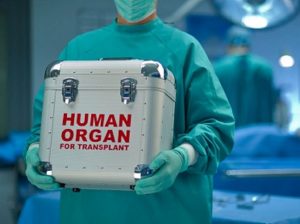The Volokh Conspiracy
Mostly law professors | Sometimes contrarian | Often libertarian | Always independent
My New Article "The Presumptive Case for Organ Markets"
t makes case that enormous benefits of organ markets create a strong presumption in favor of legalization that standard objections don't even come close to overcoming.

My new article "The Presumptive Case for Organ Markets," is now available for download on SSRN. It will be part of a forthcoming Routledge volume on organ markets edited by James Stacy Taylor and Mark Cherry. Here is the abstract:
The debate over legalizing organ markets has gone on for years, and the basic arguments are well-known. This chapter recasts the issue by emphasizing not just the nature, but the enormous magnitude of the considerations weighing in favor of legalization: saving tens of thousands of innocent lives, preventing prolonged suffering for many thousands more people, and enhancing bodily autonomy. That magnitude creates a strong presumption in favor of legalization, at least in some substantial form. Any countervailing argument must not only be valid in and of itself, but also sufficiently weighty to overcome the presumption. Standard arguments based on the risks of kidney donation, concerns about the "exploitation" of the poor, and dangers of "commodification" and moral corruption, fall short of that standard. Recent evidence on the number of lives that can be saved by legalizing organ markets and the diminishing risks of donating kidneys further accentuate the enormous magnitude of the gap between the benefits and costs of legalization
Part I provides an overview of the kidney shortage in the United States and the immense potential gains of legalizing organ sales. Doing so would save tens of thousands of lives every year, and also save many thousands more kidney failure patients from the pain and suffering of enduring many months or years of kidney dialysis. It would also enhance rights of bodily autonomy for both sellers and users of kidneys put on the market. These enormous benefits create a strong presumption in favor of legalization. Part II goes over several standard objections and explains why they fail to meet that demanding standard. These include claims that organ markets would lead to "exploitation" of the poor, arguments that they would lead to the commodification of the body, and concerns that they impose too great a risk on sellers. Each of these arguments lacks the necessary weight. In addition, to the extent objections are valid, they can be addressed by steps short of banning organ sales entirely.


Show Comments (31)